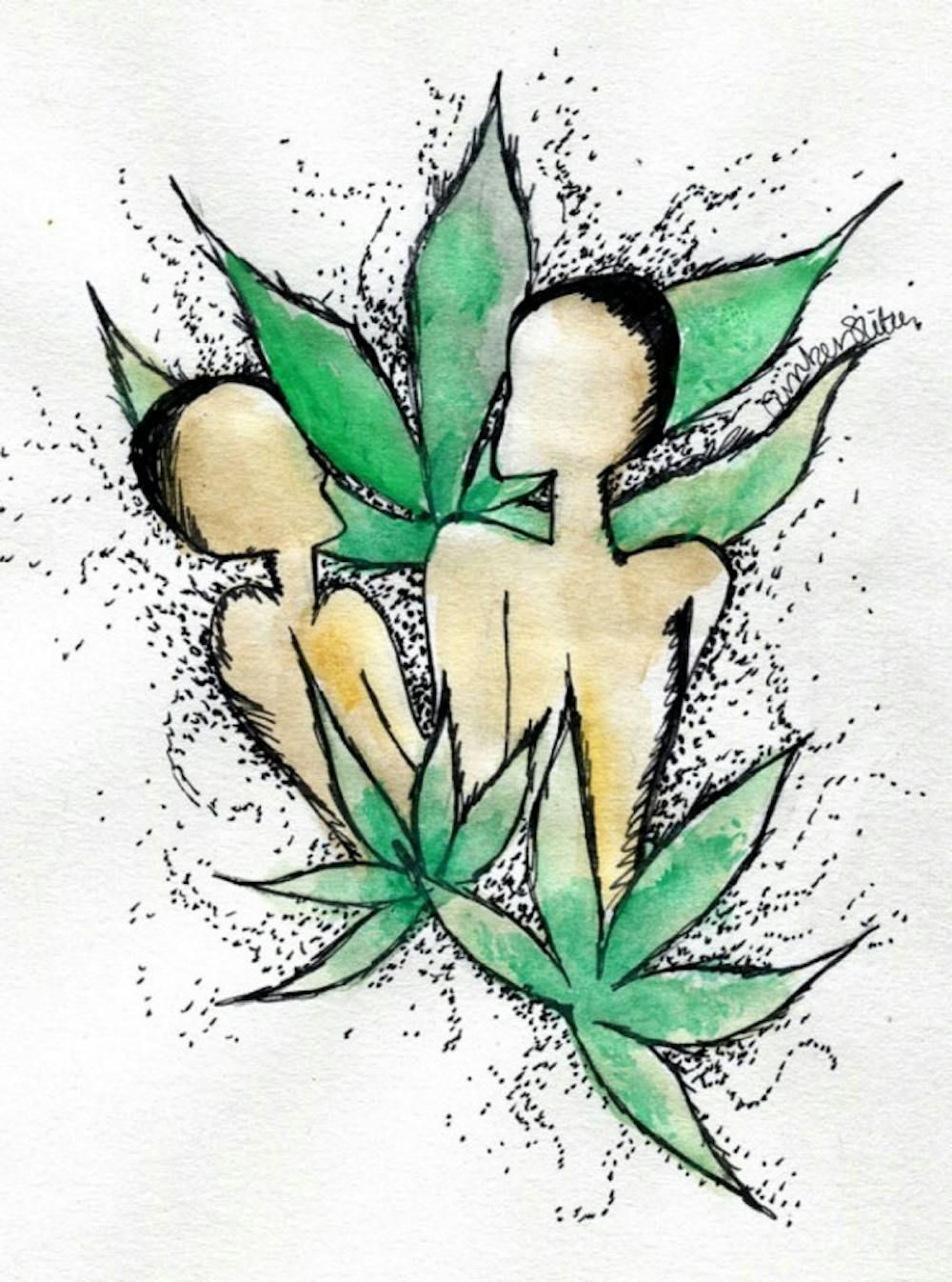Young couples who smoke marijuana may be less likely to become violent with their significant others, according to a recent UB study.
The study found that frequent marijuana use in young married couples is related to the decreased likelihood of domestic violence or hostile behavior in a relationship. Researchers with the School of Public Health and Health Professions and Research Institute on Addictions conducted the study, which took place over a span of nine years and followed 634 newly married couples.
“In one year, if the husband is a frequent marijuana user and the wife is a frequent marijuana user, that couple in the next year will experience lower levels of marital aggression,” said Kenneth Leonard, Ph.D. and director of the addictions research institute.
The study compared three situations of marijuana use between couples. It looked at which factor reduced the most aggressive behavior – only husbands smoking, only wives smoking or both parties smoking, according to Leonard.
The data revealed the correlation between aggressive behavior and marijuana use was strongest when both partners used the drug. A husband’s aggression was only reduced if he or both partners smoked marijuana and a wife’s aggression was lowered in all three scenarios.
Although the study was conducted in New York, only medicinal marijuana is legal in the state. Colorado and Washington are currently the only states that have legalized marijuana for recreational use.
The marijuana study stemmed from a different investigation that looked into marital relations and couples’ alcohol use, according to Leonard.
The researchers had certain control elements like age, education, ethnic background, income and employment. Marijuana use was one factor. UB researchers found a correlation between the regular use of marijuana and hostile behavior between the couples studied.
William Lu*, a UB student, has smoked marijuana since he was 17. Now 22, Lu does not smoke as often anymore and finds it a “luxury.” He thinks the drug helps couples to better connect.
“Many people I know use it to get more intimate with their partner,” he said. “It has this calming effect … The person does not get annoyed at little things.”
In Lu’s past relationships, smoking with his partner helped the couple open up and talk about what is bothering each other. He said neither person in the relationship would “bottle up” problems, which led to less aggressive behavior.
While many marijuana users can find the substance to be therapeutic, others experience more negative reactions.
“I could see how [marijuana] might help some people,” said UB student Claire Meddle*. “But in my personal experience, hostile attitudes are more prevalent under the influence of marijuana.”
Meddle said when she is under the influence, she becomes more annoyed with her boyfriend and anybody she interacts with.
She said she experiences increased levels of anxiety when she smokes marijuana.
Her and her boyfriend of more than four years would often get into fights when she was under the influence of the drug. She would find flaws in his closest friends very “exaggerated” and argue over why he’s friends with them.
“I see what I perceive to be people’s flaws more,” Meddle said. “I get more aggravated with them … just feeling more over-judgmental in social situations.”
Meddle also pointed out people who read the results of the study might interpret the findings in the wrong way.
“I feel like you can’t take this study at face value and say ‘Oh, because they smoke weed, they’re not getting in violent episodes,’” she said. “But how do you know they’re not?”
Most people in violent relationships won’t come out and say it, even if it were for an anonymous study, because they don’t see anything wrong, she said.
Leonard said it’s important to understand aggression is only one aspect of marital relations.
“It’s pretty clear from our data that couples where they are both using marijuana are not experiencing increased levels of violence,” he said. “But that doesn’t mean that everything is good with their marriage.”
In a previous study where Leonard and his colleagues delved into divorce, there was a slight, but not significant, increase of likelihood in divorce occurring if either partner smoked marijuana, Leonard said.
The study does not mention every aspect of a marriage and it does not address potential harms of marijuana, he added.
“I think that many people assumed that smoking marijuana actually led to reduced violence,” he said.
Leonard believes further research is necessary in determining whether in fact this is true and until then, conclusions should not be drawn.
*These names have been changed to protect the sources’ anonymity.
email: news@ubspectrum.com





